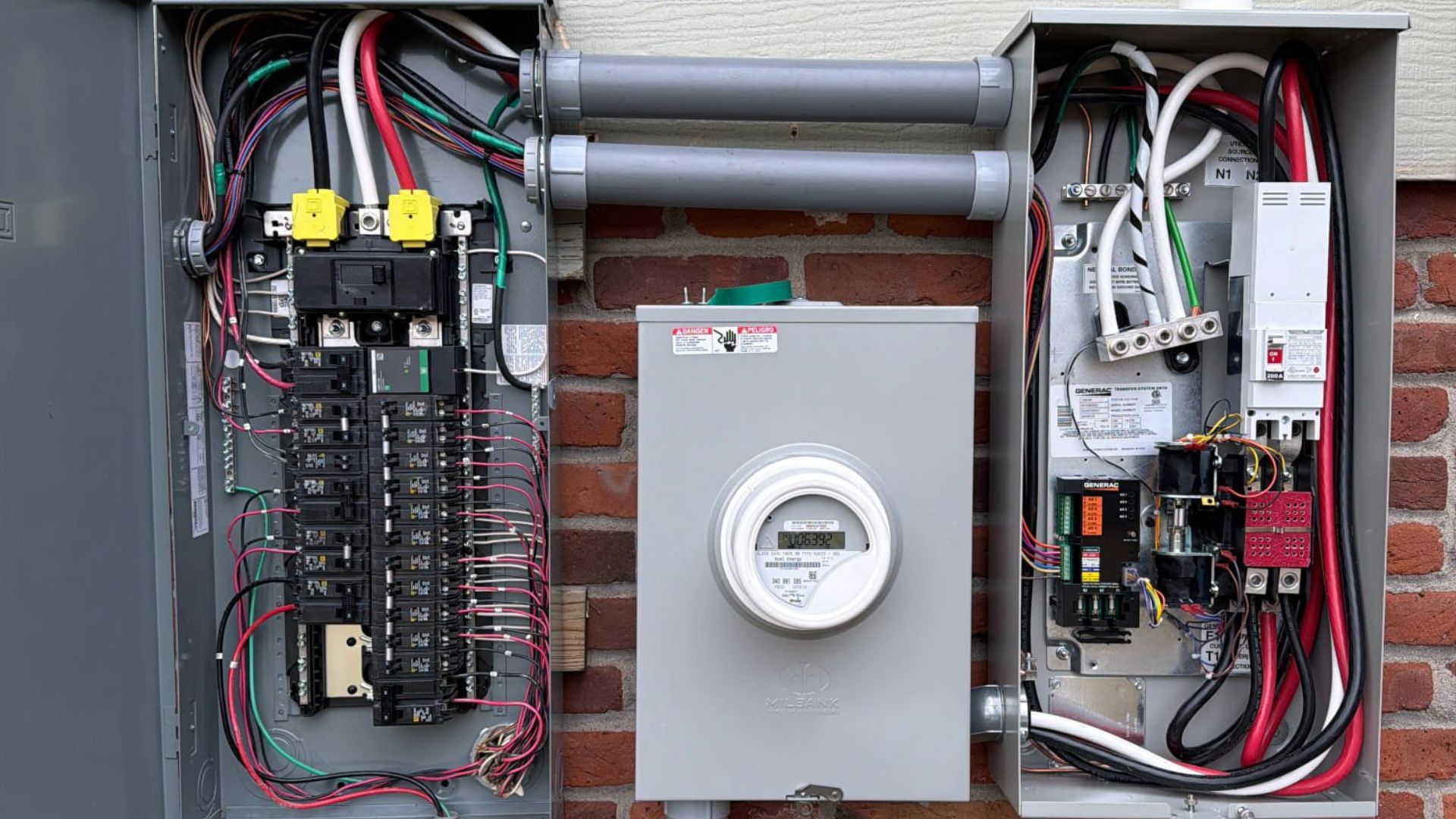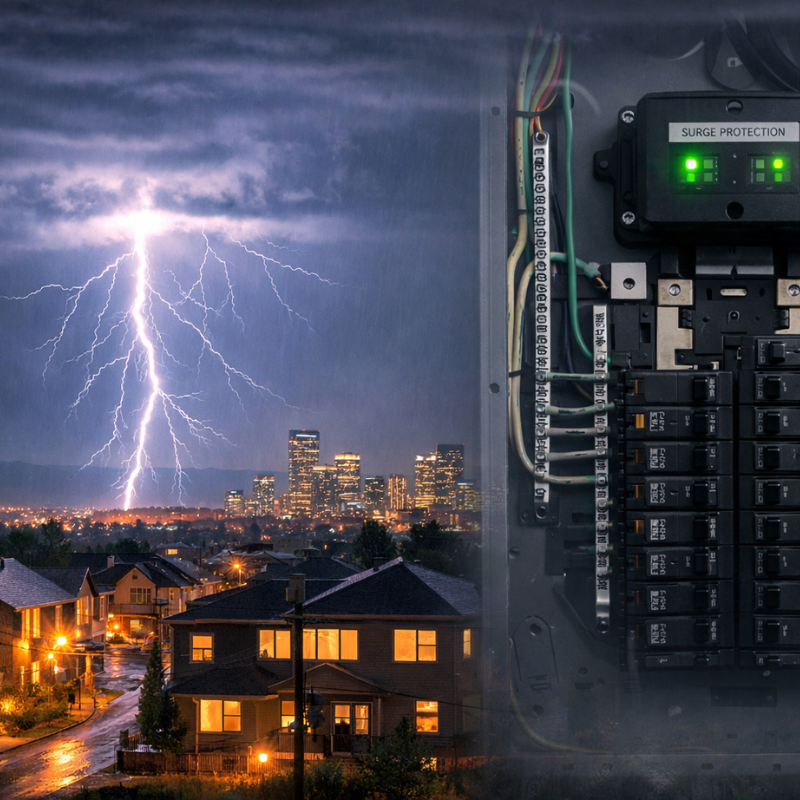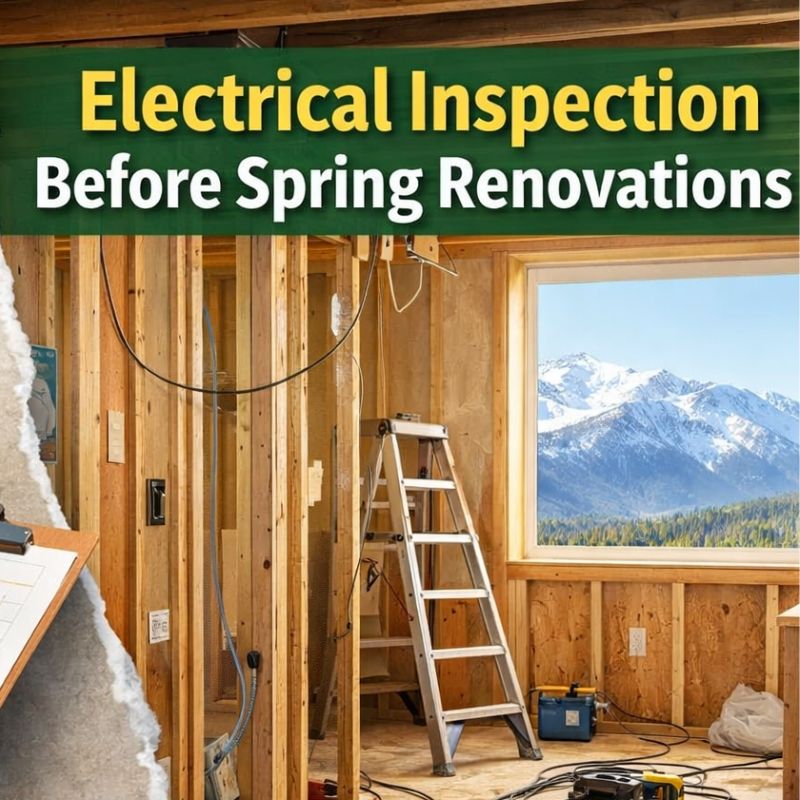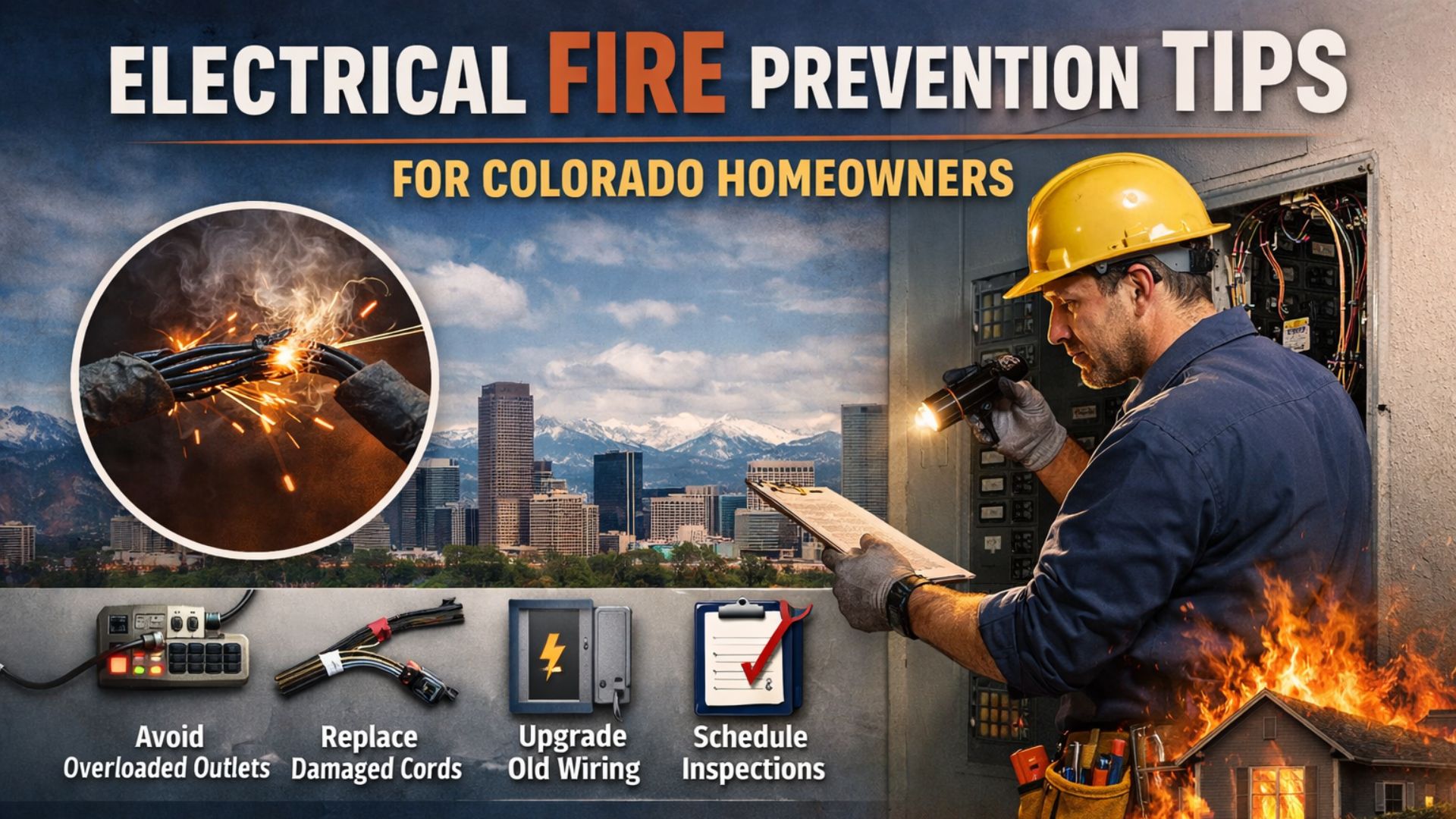Contents
- When Weather Meets Wires
- 1. Cold Weather and Your Electrical System
- 2. Hot Weather and Power Strain
- 3. Storms, Lightning, and Power Surges
- 4. Moisture, Snow, and Ground Faults
- 5. Seasonal Maintenance Tips for Colorado Homeowners
- FAQs About Weather and Electrical Systems
- Why Colorado Homeowners Trust The Electricians
Trusted Colorado Electricians
When Weather Meets Wires
Colorado homeowners know the drill, sunshine in the morning, snow by afternoon, and a thunderstorm before dinner.
While that might make for interesting small talk, it can also create big problems for your home electrical system.
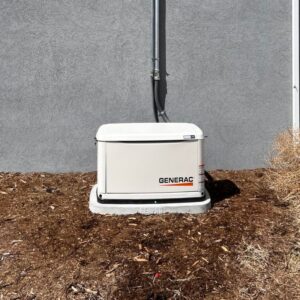
From frigid winters to scorching summers, Colorado’s climate puts constant stress on wiring, outlets, and panels.
Understanding how weather affects electricity can help you stay safe, avoid costly electrical problems, and keep your lights (and heat) on when you need them most.
Let’s break down how Mother Nature can mess with your home’s electrical system, and what you can do to protect it.
1. Cold Weather and Your Electrical System
When the temperature drops, your electrical system works overtime to power space heaters, furnaces, and other appliances.
But cold weather can cause more than just higher energy bills, it can also create hidden electrical issues.
Can Cold Weather Affect Wires?
Yes. Cold weather can make electrical wires contract. Over time, this contraction and expansion can loosen wire connections, especially in older homes.
Loose connections increase resistance, leading to flickering lights or even dangerous arcing that can cause electrical fires.
Can Cold Weather Cause Electrical Problems?
Absolutely. Ice buildup, frozen conduits, and brittle insulation can all create electrical problems during the winter months.
Outdoor outlets and wiring are particularly vulnerable if not properly weatherproofed.
Even inside your home, condensation from temperature fluctuations can lead to moisture around outlets or breaker panels, a recipe for short circuits.
Pro Tip: If your outlets spark or your breaker keeps tripping when it’s freezing outside, that’s your home telling you it’s time for an inspection.
2. Hot Weather and Power Strain
Colorado summers can bring intense heat, and while your AC works to keep you cool, your electrical system feels the pressure.

Can Hot Weather Cause Electrical Problems?
Definitely. When outdoor temperatures rise, so does demand for electricity. Central air conditioners, refrigerators, and other household appliances run nonstop, causing strain on circuits.
This can lead to overheated wires, tripped breakers, and even power outages in severe cases.
Excessive heat can also damage insulation on wires, especially in attics or garages where temperatures can soar.
Over time, this wear and tear can lead to exposed electrical wiring, a potential fire hazard.
Energy-Saving Tip: Upgrading to energy-efficient models of appliances can reduce electricity costs and lessen stress on your home electrical system during the summer.
3. Storms, Lightning, and Power Surges
Colorado ranks among the top states for lightning strikes. Thunderstorms may look spectacular over the Rockies, but they’re bad news for unprotected electrical systems.
Lightning strikes or nearby power line surges can instantly fry sensitive electronics, damage circuit breakers, or even start fires.
Heavy rain can also lead to water intrusion around exterior outlets or electrical panels, causing dangerous short circuits.
Protecting Your Home from Power Surges
- Install whole-home surge protection: This device connects directly to your main electrical panel to absorb high-voltage spikes before they reach your appliances.
- Use surge-protecting power strips: Great for computers, TVs, and other electronics.
- Schedule regular electrical inspections: A licensed electrician can identify vulnerabilities before storm season hits.
At The Electricians, we install whole-home surge protectors designed to keep your household safe from Colorado’s stormy surprises.
4. Moisture, Snow, and Ground Faults
Moisture is the silent enemy of your home’s electrical system. Whether from snowmelt, roof leaks, or high humidity, water and electricity simply do not mix.
Common Weather-Related Electrical Issues
- Ground faults: When moisture creates an unintended path between an electrical source and the ground, it can trip GFCI outlets, or worse, cause electric shock.
- Corroded wiring: Prolonged exposure to moisture can corrode metal connectors, leading to unreliable performance and potential hazards.
- Malfunctioning outdoor lighting: Outdoor outlets, landscape lights, and holiday decorations often take the brunt of weather-related wear and tear.
If you notice flickering lights, burning smells, or outlets that feel warm, call a professional immediately. These are warning signs of potential electrical problems that could worsen over time.
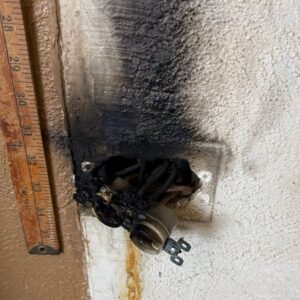
5. Seasonal Maintenance Tips for Colorado Homeowners
You can’t control the weather, but you can protect your electrical system from it. Here are a few maintenance tips to help your home weather any storm:
- Schedule annual electrical inspections: Preventive care helps identify loose connections, worn insulation, and potential fire hazards.
- Install GFCI outlets in moisture-prone areas: Especially outdoors, in garages, kitchens, and bathrooms.
- Check your panel and circuits: Ensure your electrical panel can handle seasonal energy demands, especially before summer or winter.
- Seal outdoor outlets: Use weatherproof covers to keep rain and snow out.
- Upgrade old wiring: Homes built decades ago may not be equipped for today’s power-hungry appliances.
The Electricians can help with all of this, from basic maintenance to full electrical system upgrades, keeping your home safe and efficient year-round.
FAQs About Weather and Electrical Systems
Q: How does weather affect electricity?
Weather can impact both power generation and your home’s electrical wiring. Heat increases energy demand, cold contracts wires, and storms can cause surges or outages, all of which stress your home’s electrical system.
Q: Can cold weather affect wires?
Yes. Cold causes metal to contract, which can loosen electrical connections and lead to arcing or faulty circuits.
Q: Can cold weather cause electrical problems?
Definitely. Freezing temperatures can damage insulation, create condensation, and even trip breakers if moisture seeps into outdoor outlets or wiring.
Q: Can hot weather cause electrical problems?
Yes. Prolonged heat can overwork your circuits, degrade wire insulation, and cause breaker panels to overheat, leading to shutdowns or even electrical fires.

Why Colorado Homeowners Trust The Electricians
When it comes to protecting your home electrical system from Colorado’s unpredictable weather, The Electricians are the experts you can count on.
Our certified technicians understand local climate challenges and provide everything from storm protection to full electrical upgrades.
Whether you’re dealing with flickering lights, power surges, or overloaded circuits, we’re here to help with safe, code-compliant solutions.
Schedule a Free Estimate Today
Don’t wait for the next storm or cold snap to test your home electrical system.
Contact The Electricians today for a free estimate and keep your home running safely in every season.
Related Posts
If you enjoyed reading this, then please explore our other articles below:
Electrical Panels in Colorado Homes
Many homes across Colorado, especially in Denver, Aurora, Lakewood, and Colorado Springs, were built with electrical panels that were never designed for modern power demands. Cold winters, EV charging, home offices, and newer appliances place added stress on older panels and breakers.
If you are noticing frequent breaker trips, buzzing sounds, or planning an upgrade like an EV charger or heat pump, a licensed Colorado electrician can evaluate whether your panel needs repairs or a full power upgrade.

